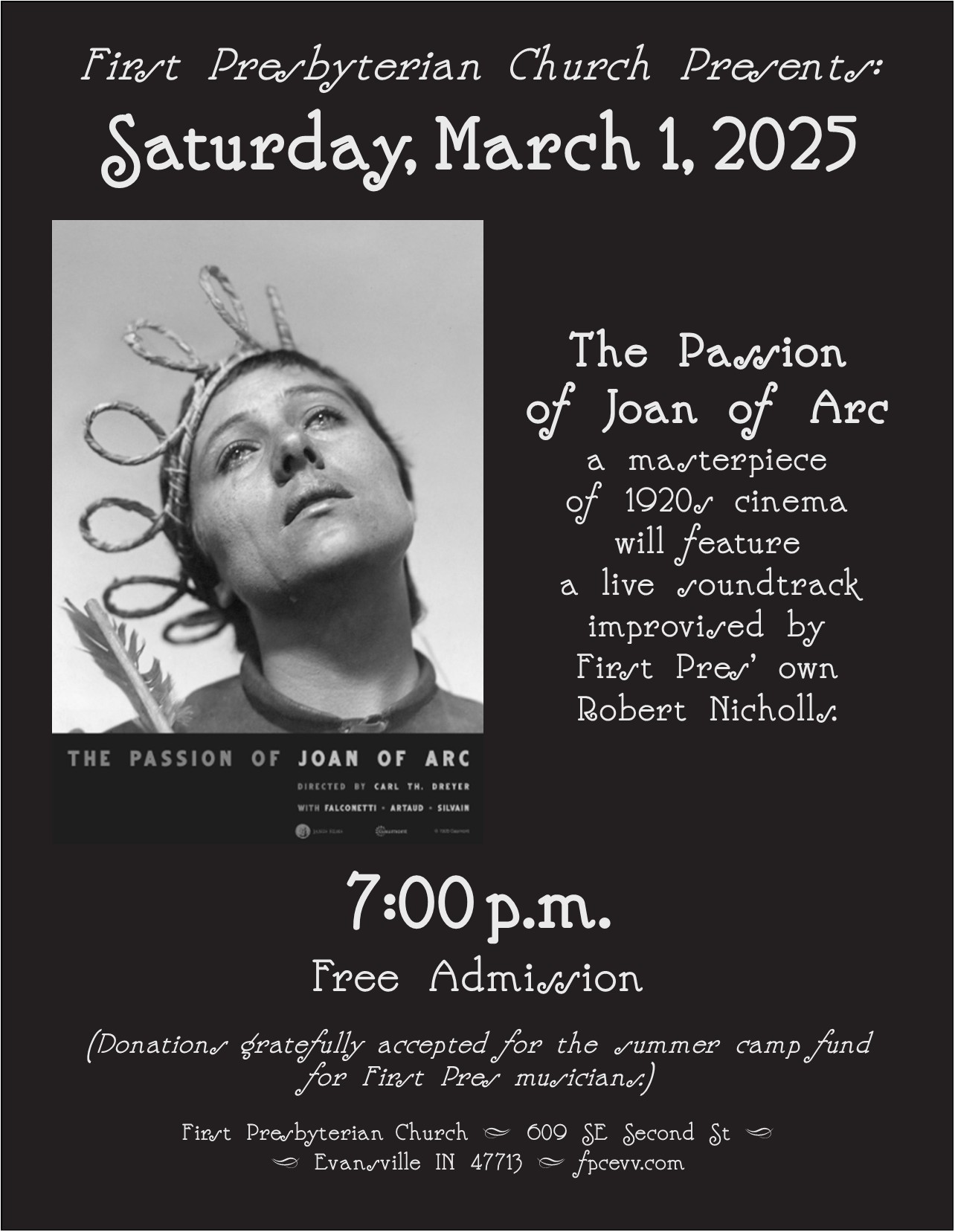

More Information about our Event
The Passion of Joan of Arc
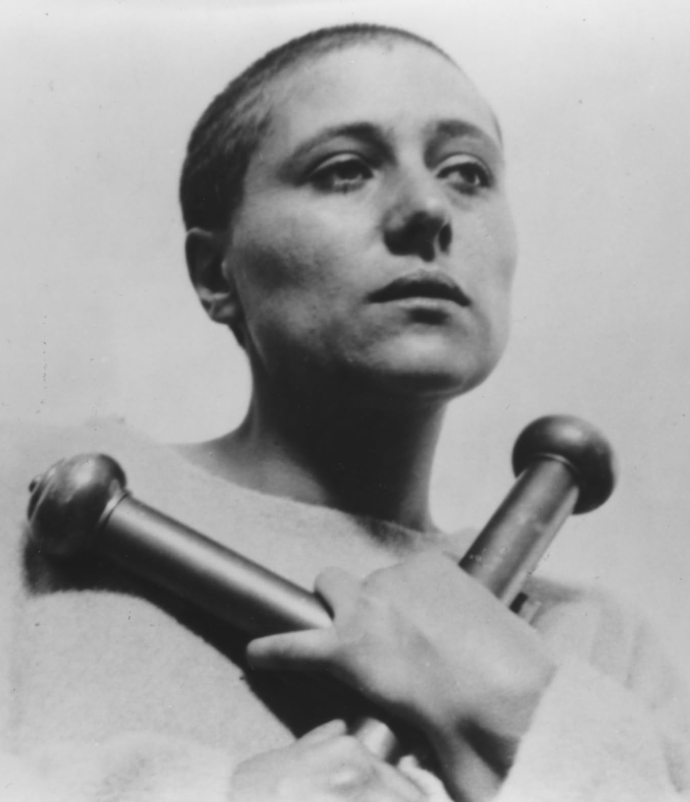
The Passion of Joan of Arc (French: La Passion de Jeanne d’Arc) is a 1928 French silent historical film based on the actual record of the trial of Joan of Arc. The film was directed by Carl Theodor Dreyer and stars Renée Jeanne Falconetti as Joan. It is widely regarded as a landmark of cinema,[1] especially for its production, Dreyer’s direction and Falconetti’s performance, which is often listed as one of the finest in cinema history. The film summarizes the time that Joan of Arc was a captive of England,[2] depicting her trial and execution.
Danish director Dreyer was invited to make a film in France by the Société Générale des Films and chose to make a film about Joan of Arc due to her renewed popularity in France. Dreyer spent over a year researching Joan of Arc and the transcripts of her trial before writing the script. Dreyer cast stage actress Falconetti as Joan in her only major film role. Falconetti’s performance and devotion to the role during filming have become legendary among film scholars..
The film was shot on one huge concrete set modeled on medieval architecture in order to realistically portray the Rouen prison. The film is known for its cinematography and use of close-ups. Dreyer did not allow the actors to wear make-up and used lighting designs that made the actors look more grotesque. Prior to its release, the film was controversial due to French nationalists‘ skepticism about whether a Dane could direct a film about one of France’s most revered historical icons. Dreyer’s final version of the film was cut down due to pressure from the Archbishop of Paris and government censors. For several decades, it was released and viewed in various re-edited versions that attempted to restore Dreyer’s final cut. In 1981, a print of Dreyer’s final cut was discovered in Dikemark Hospital, a mental institution just outside Oslo, Norway, and re-released.[3]
Despite the objections and cutting of the film by clerical and government authorities, it was a major critical success when first released and has consistently been considered one of the greatest films ever made. It has been praised and referenced by many film directors and musicians. In 1958, the film was voted number 4 on the prestigious Brussels 12 list at the 1958 World Expo.
The Organ – C. B. Fisk, Op. 98
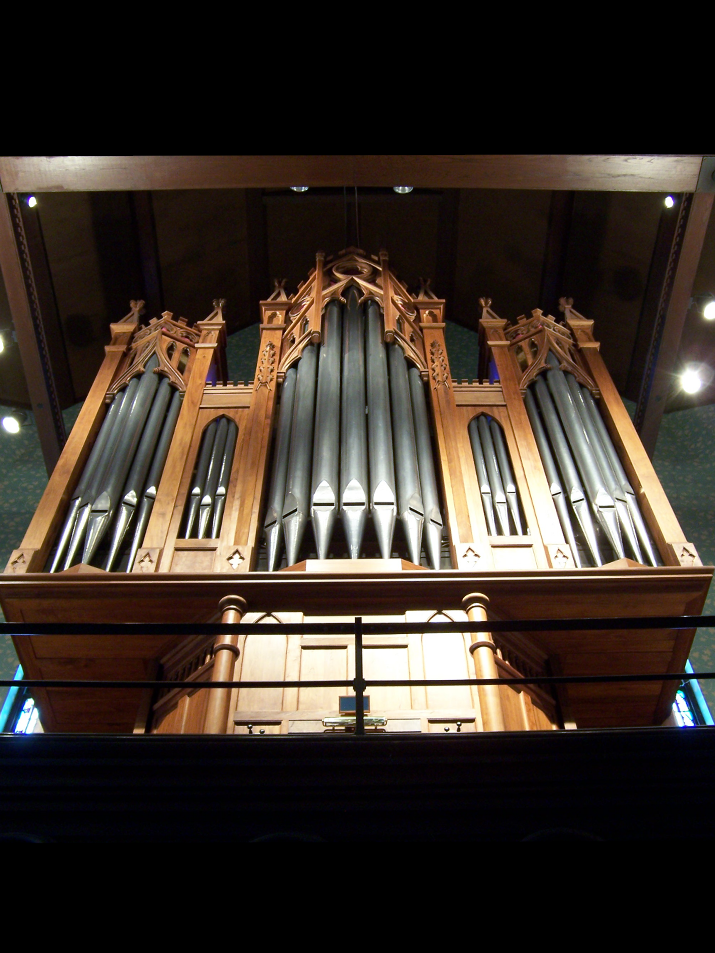
This particular organ was conceived not just for the worship life at First Presbyterian, but as an investment in the culture of our region for generations to come.
The Fisk company designed the instrument to have a variety of sounds to provide artistic and flexible support of congregational and choral singing. As it was noted at the time of its dedication twenty years ago this month, First Presbyterian would be able through this instrument not only to revitalize its worship life through music, but also assume a position of leadership in the community and the region. By providing the best possible organ to support worship activities, the church created a resource for other musical and educational activities that have been part of church work for centuries. The organ has been visited by numerous internationally acclaimed musicians, High School music appreciation classes, and used for educational events of national significance.
The organ is a large box of pipes each of which is controlled by a keyboard to select the pitch, and ‘stop’ levers to select which group of pipes will sound. The largest pipes are 16’ long, and the smallest about the size of a fingernail. All selections are made by hand while playing.
The Choir School
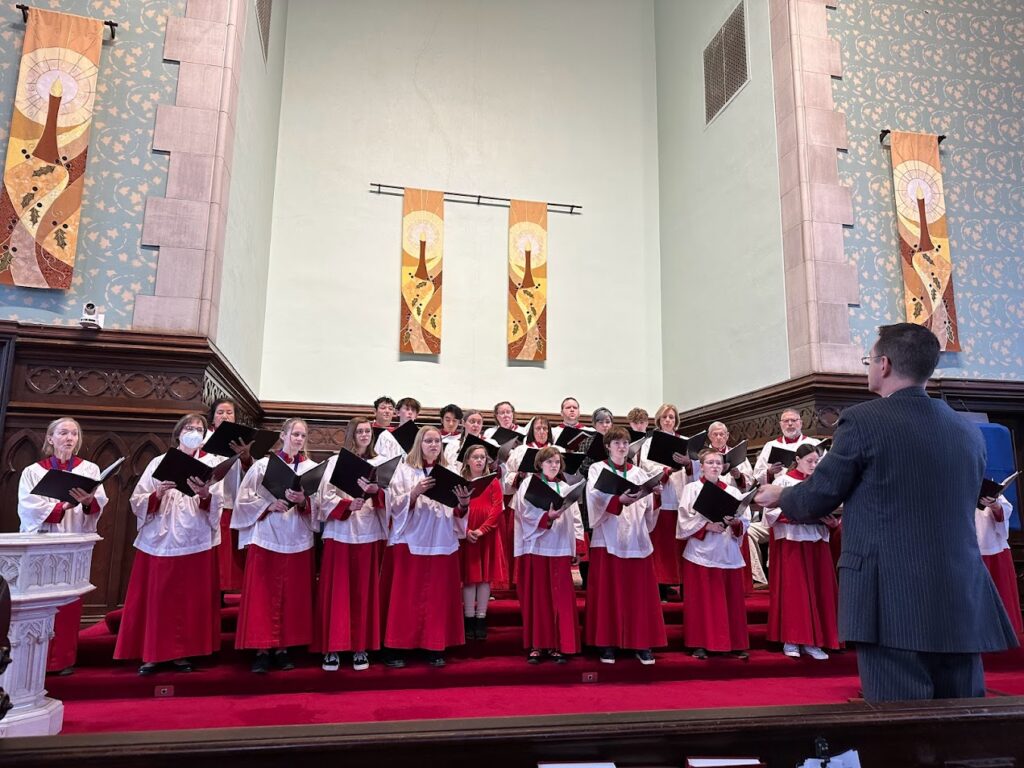
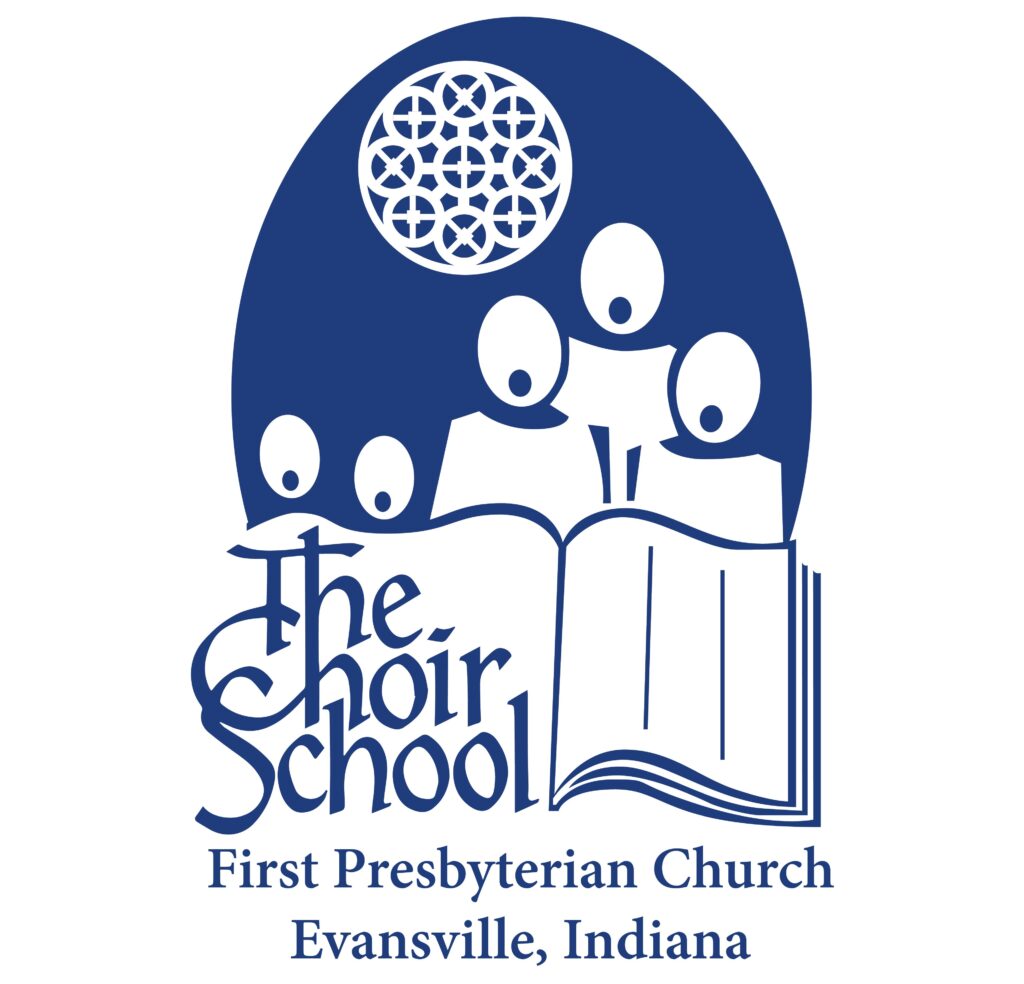
The Choir School of First Presbyterian Church is affiliated with the Royal School of Church Music which supports a world-wide network of 8,500 churches, schools and individuals. The RSCM is committed to achieving the best use of music in worship, whatever the resources, whatever the styles. Through education, training, publications, advice and encouragement, the RSCM supports church music today and invests in church music for the future.
Summer Courses are held throughout the US and provide choral training for choristers of all ages to support the highest level of music making. The cost of courses is substantial (around $500 per participant) and your donation will be gratefully received.
Robert Nicholls: Director of Music
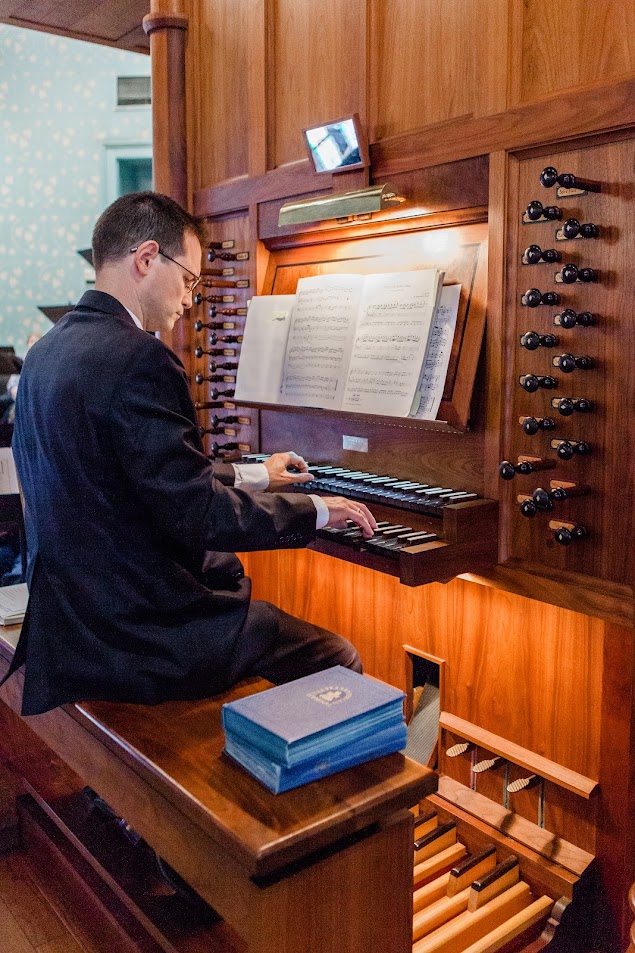
Robert Nicholls is Director of Music at First Presbyterian Church in Evansville, Indiana. He started his musical education as a Chorister at Westminster Abbey under Simon Preston, graduated from Oundle School and Cambridge University, and sang in the choirs of Gonville and Caius and St. John’s Colleges.
Robert has served as Housemaster and Organist for RSCM Summer Training Courses for twenty-five years and been on staff and planning teams for the Presbyterian Association of Musicians Worship and Music Conferences at Montreat, North Carolina. 2024-25 Robert is the Director of the RSCM America National Choir.
Robert enjoys accompanying worship from the organ and also silent films. He won first place at the American Guild of Organists National Competition in Organ Improvisation in 2012. Robert was an adjunct lecturer in Music at the IU Jacobs School of Music from 2015-2017 teaching keyboard skills, graduate improvising courses and supervising the Sacred Music Practicum. He is currently Adjunct Professor of organ and harpsichord at the University of Evansville and serves on the RSCM America National Board of Directors.
Robert is married to Emma Nicholls, PhD, a pediatric Clinical Psychologist whom he met next door in Evansville. They are proud parents of Elena (19) and William (16).
“Sitting at the console of this instrument gives one the feeling of being the conductor of a symphony orchestra, perhaps not the largest around, but certainly one made up of the best players trained to listen and blend with each other. As organist, I have at my disposal solo orchestral voices of violins, trumpets, oboe and clarinet, as well as beautiful flutes and warm foundations. The full organ sound having ‘pulled out all the stops’ is a thrilling and awesome sonic experience as the multiple voices come together and blend in the grand space of the lofty-ceilinged church. It is hard to imagine a more suitable instrument for expressive music making by an individual. This evening’s performance will be entirely improvised (composed) as the movie plays. It has never been heard before and it will never be heard exactly like this again.”
– Program notes by Robert Nicholls
Suggested donation $5 (or more!) to The Choir School of First Presbyterian Church
